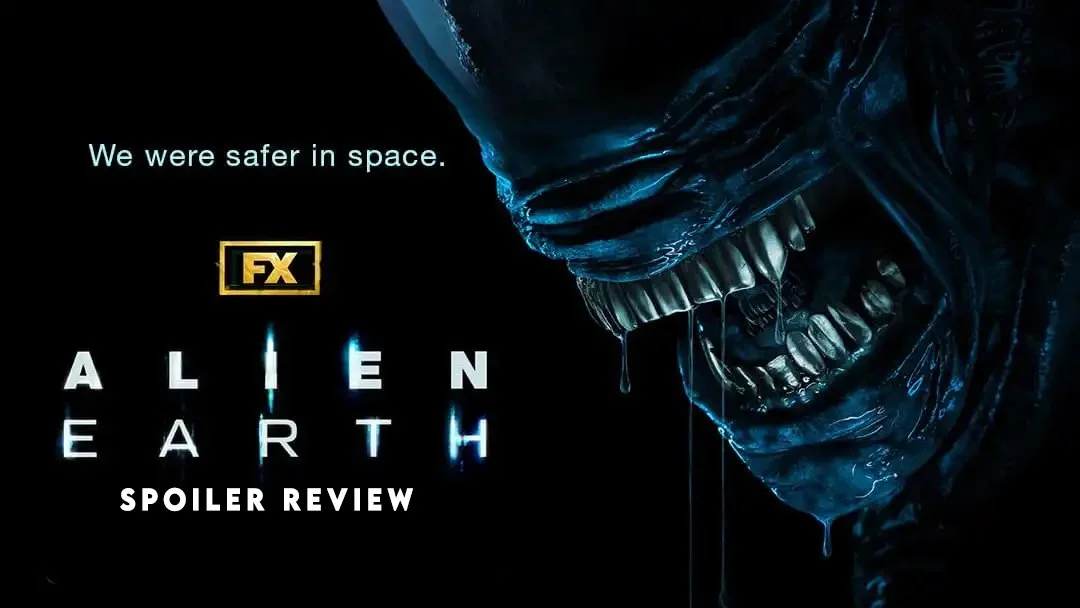REVIEW // ‘Neverland’ // The ALIEN: EARTH PILOT EPISODE
There are spoilers in this review: please consider before reading
RATING: 8/10
By Jaime Prater (co-host, Perfect Organism: The Alien Saga Podcast)
Alien has entered a different kind of space: television.
Announced in 2020 during the first year of the pandemic, Noah Hawley’s vision for Dan O’Bannon’s world took over five years to reach the small screen. I had the pleasure of screening the pilot for Alien: Earth via digital screener, and again during the show’s Hall H premiere at San Diego Comic-Con. The pilot left me intrigued.
Television pilots are always tough. They have to introduce story and character in a way that will keep audiences coming back. The Alien series has seen an exciting revival, thanks largely to Fede Álvarez’s Alien: Romulus, which released in August 2024 on an $80 million budget and went on to earn over $350 million worldwide. While fandom remained divided, with some feeling the film relied too much on callbacks and “member berries,” 20th Century Studios and Disney saw its success as proof that the appetite for Dan O’Bannon’s vision is still strong.
Babou Ceesay as Morrow // Alien: Earth
Noah Hawley’s Alien: Earth is the first time Alien has come to television. The story centers on Wendy, an android with a human soul, played with quiet strength and conviction by Sydney Chandler. She and her band of “Lost Boys” investigate a crashed Weyland-Yutani ship (Wey-Yu being one of five megacorporations controlling a distant, altered Earth).
What’s most exciting about Alien: Earth is how much of it feels new. Hawley opens the episode in familiar territory, aboard the USCSS Maginot, a Weyland-Yutani vessel returning to Earth with five new and deadly lifeforms. The ship crash-lands into a building in Prodigy City, and mayhem ensues. Key figures are introduced throughout the pilot. Timothy Olyphant’s Kirsh, an android who mentors Wendy, is particularly compelling. But the breakout star is Babou Ceesay as Morrow, a cyborg with unclear motives. Ceesay plays him with a kind of rare intensity that lifts the pilot above what the script alone might promise. It’s thrilling to know there are seven more episodes to come.
A dark silhouette lingers in the distance. Alien: Earth // FX Networks
The pilot’s biggest issue is its early exposition. It opens aboard the Maginot, where the crew awakens from cryo in a scene that lovingly echoes Alien (1979). The dialogue here is strong, overlapping and grounded, and it feels like we’re home. Then it shifts. Characters begin speaking directly to the audience, explaining the world in ways that feel heavy-handed. The trust Ridley Scott placed in his viewers is missing, replaced by a need to over-explain. It’s as if the studio doesn’t trust us to keep up.
Back on Earth, the Prodigy science facility on an island called Neverland, run by a Peter Pan-obsessed trillionaire named Boy Kavalier (played creepily well by Samuel Blenkin), is where the narrative wobbles a bit. The pseudo-science around transferring human consciousness into synthetic bodies feels goofy and hard to buy, echoing the oddities of Alien: Resurrection. Alien built its legacy on a sense of grounded realism, and when every line lands with a dramatic pause, it risks sliding into parody. There’s too much showing and telling, and moments that should breathe end up feeling forced.
An XX121 leaps towards CJ, played by Alex Lawther // Alien: Earth // FX Networks
In interviews, Hawley has talked about crafting a show that rises above the callback-heavy spectacle of Romulus and avoids the tired tropes that have followed the series since Resurrection. I believe him. Despite its missteps, there’s greatness here. What’s good is truly great. The heart of Alien has always been its characters, not its monsters or tech. If Hawley and his team stay true to that, season one of Alien: Earth could mark the start of a real renaissance.




